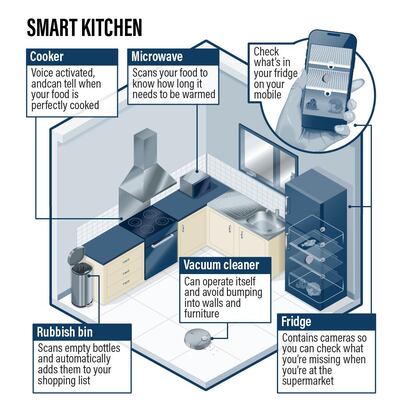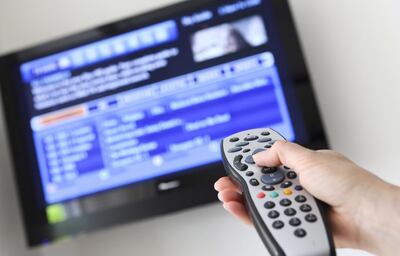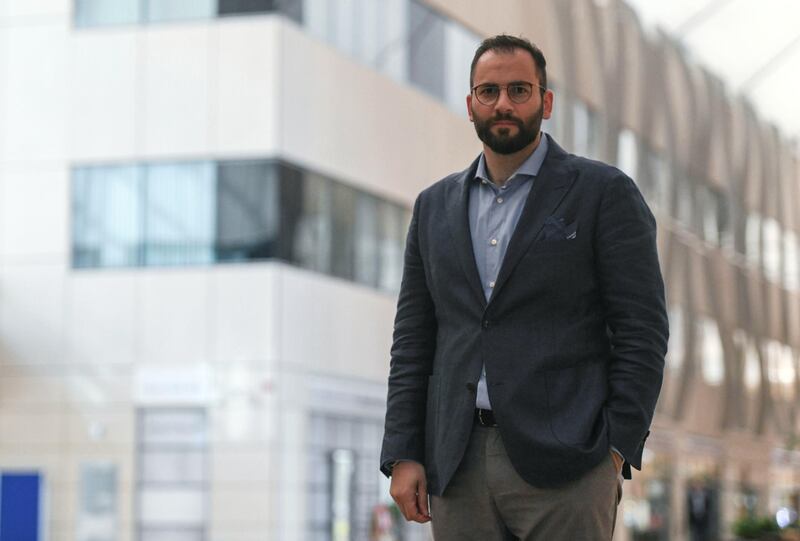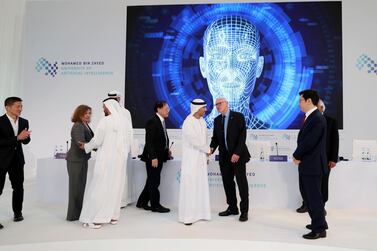Picture the scene. As you arrive home, your front door instantly recognises you and obligingly swings open.
Then your lights turn on automatically as you make your way to the kitchen. There, the kettle is already boiling.
Moments later, as you make your way through to the living room, the television turns on and switches itself to your favourite channel. The room’s air conditioning has already reached your preferred temperature.
Much of this might sound like science fiction, but it could all soon become standard in homes across the UAE.
Emaar, the Dubai property developer, has announced a partnership with Xiaomi, a Chinese technology company, to incorporate smart devices throughout its new housing estates.
Other developers are also looking at how they can best harness the potential of high-tech homes.
Emaar’s new ‘smart home’ developments, to be launched later this year, will have a series of built-in features enabled by artificial intelligence.
The aim, according to the developer, is to ensure all its future properties “meet the demands of tomorrow’s customers”.
Smart home technology describes devices and appliances that are connected to a network – most commonly the internet – which enable them to be controlled remotely via an app, through sensors or by communication with other smart technology.
But Dr Ahmed Shuhaiber, an assistant professor at Zayed University’s College of Technological Innovation, said technology considered ‘smart’ today may well be obsolete by tomorrow, with the next generation of smart homes including far more sophisticated features.
While many modern TVs are marketed as ‘smart’ because of their ability to connect to Netflix or YouTube, Dr Shuhaiber, who has dedicated years to researching smart technology, said he believed this was inaccurate.
“Smart means [a device] can talk directly to other devices,” he said. “That is smartness; that is self-controlled.
“There’s no control [needed from] humans to turn off or turn on.
“It should be adaptive in a way that it can recognise the environment and see if it is evening time, understand my facial aspects and see if I’m just about to sleep. It should be shutting off by itself.
“For example, if you have a smart fridge and the door is left open, the fridge itself should send you an alert to your mobile device that it is open and you need to close it.
“And if it is more intelligent or smart, it could find the nearest family member to the fridge inside the home or outside the home and ask him or her to close it.”
The fridge itself could have some contacts with your doctor or nutritionist and tell the doctor what sort of food you have inside your fridge and are consuming, he said.
Currently, the most popular smart devices are basic home appliances such as smart lights, smart curtains and smart door locks, Dr Shuhaiber said.
But the systems are often not integrated with one another, and in some cases cannot be connected if they are from brands that use incompatible software.
Despite this, Dr Shuhaiber said he saw fully integrated smart homes as being common in the future.
He highlighted they would remove the burden of the consumer having to purchase, install and integrate many distinct smart home devices, as they would already be built in to the property.
Home owners would have a fully integrated set of smart devices available to them as soon as they moved in, he said.
“If you have a LG TV and an Apple smartphone and another brand for your fridge and Hitachi for your lights, there’s a compatibility issue,” Dr Shuhaiber said.

“It won’t be compatible because of the software, because of the protocols. They won’t be able to properly talk to each other.
“If you wish to have a smart home, you probably have to concentrate on only one vendor.”
Tariq Bashir, operations manager at iSmartHome Technology, a UAE company that specialises in installing the technology, explained some companies were already addressing this problem.
By joining associations of companies that were open to the idea of sharing software systems, firms could ensure their products were integrated across a wide number of brands.
Yet despite ongoing efforts to overcome the difficulties of introducing effective smart appliances, Dr Shuhaiber said there were those that remained sceptical.
His latest research, set out in a paper published in the Technology in Society journal last year, focused on people's perceptions of smart devices and their willingness to use them, and found many were wary.
“There are some perceived security, privacy and technical risks that might be associated with smart home devices,” he said.
“So people fear having their personal information leaked through those devices, or penetrated. There is some associated risk, of course.”
Yet despite the perceived concerns, Dr Shuhaiber said he remained adamant that the most likely malfunctions of smart devices would only result in benign issues, such as the automated ordering of “10 kilograms of bananas” due to a broken fridge.
“If we are about to compare risk and enjoyment, I feel like people are feeling they’re having more fun with the technology than they are aware of the risk,” Dr Shuhaiber said.

Mr Bashir also said seeing smart home devices in friends’ homes or in public places such as hospitals, mosques and hotels, which are also increasingly embracing smart devices, could prove a powerful motivator.
“If your neighbour has a smart home next to you, you think you should have one too,” Mr Bashir said.
A more pressing concern among consumers is the high cost and whether the devices are really necessary, Dr Shuhaiber said.
He said one of the strongest reasons currently for consumers installing devices was the ability to personalise a system’s functions to best address their needs.
Analysis of smart device usage in the UAE is hard to come by because companies are reluctant to share any consumer information, Dr Shuhaiber said.
But Statista Market Analysis, a German online database for market research, said four per cent of UAE homes already make use of at least one smart home device, with the figure expected to rise to 10 per cent by 2024.
“Twenty years back, if we were renting an apartment, we would ask if it was furnished or not," Dr Shuhaiber said.
“Nowadays, I think the concept will be changing – [we will ask] if it is smart home furnished or not.”







